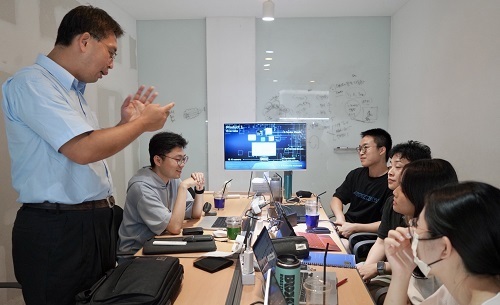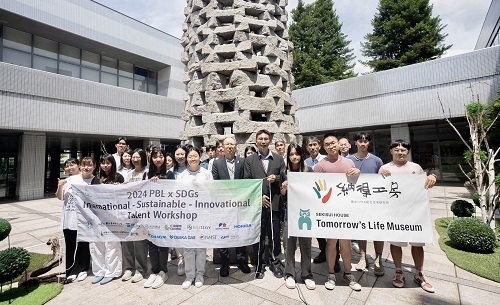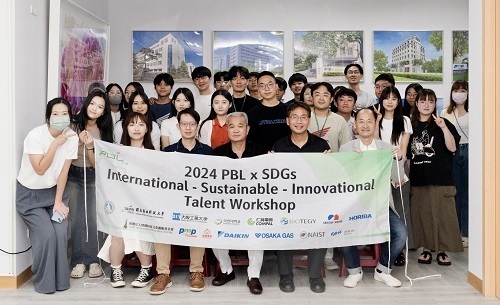2024 Taipei Tech PBL Workshop: Bridging Borders and Industries
In summer 2024, Taipei Tech hosted an international Problem-Based Learning (PBL) workshop, the first in five years, uniting students from Taipei Tech, Japan's Osaka Institute of Technology, and South Korea's Kookmin University. Partnering with four global companies, the workshop saw 23 participants-10 from Taipei Tech-collaborate in interdisciplinary, cross-cultural teams over two months to address real-world challenges tied to the United Nations Sustainable Development Goals (SDGs).
Cross-Disciplinary Collaboration
The 10 Taipei Tech students are from various programs, including engineering, electronic engineering, and design, of five colleges at Taipei Tech. They teamed up with participants from other institutions to propose solutions to problems raised by the event's corporate partners. The corporate partners were Sekisui House (Japan), Horiba (Korea), Compal Electronics (Taiwan), and Biotegy (Taiwan), and they challenged participants to address issues related to sustainable housing, mobility, technology, and sensory data sharing.
Tackling Real-World Challenges
.Sekisui House (Japan): Teams devised housing designs integrating adaptable features for future electric mobility trends.
.Horiba (Korea): Students developed prototype tires with porous spiral designs, enhancing remote-controlled car efficiency and eliminating the need for inflation.
.Compal Electronics (Taiwan): Participants proposed credit card-sized computers equipped with integrated AI assistants for automatic scheduling and a built-in 3D projector for enhanced functionality.
.Biotegy (Taiwan): Teams explored innovative ways to share sensory data, such as smell, taste, and touch, enhancing telepresence experiences.
Industry and Academic Impact
Corporate representatives commended the participants for their creative solutions and presentation skills, emphasizing the importance of integrating AI into future innovations. These collaborative efforts showcased how interdisciplinary projects can bridge theoretical learning and practical industrial applications.
The workshop demonstrated the benefits of cross-border learning. According to Professor Kenji Matsui, Director of the Robotics & Design Center at Osaka Institute of Technology, partnerships like this prepare students to solve complex real-world problems. Professor Yeon Gyu Yu from Kookmin University noted that visits to corporate headquarters in Taiwan, Japan, andKorea offered valuable insights into corporate cultures and fostered a deeper understanding of international teamwork.
Preparing Global Talent
The workshop emphasized SDGs ssuch as sustainable urban development and innovation, equipping participants with vital skills in problem-solving, designing, and cross-cultural collaboration. As Professor Yeon observed, these experiences expanded students' global perspectives and instilled the confidence to address challenges in a rapidly evolving workforce.
In the future, Taipei Tech with continue offering experiential learning opportunities that combine industry collaboration with sustainability initiatives. Such efforts will further perpare students to drive progress in achieving global SDGs while excelling in an interconnected world.








Chinese Resource:https://www.nownews.com/news/6523004
Taipei Tech Post Issue 67:https://www-en.ntut.edu.tw/p/404-1006-143206.php?Lang=en
